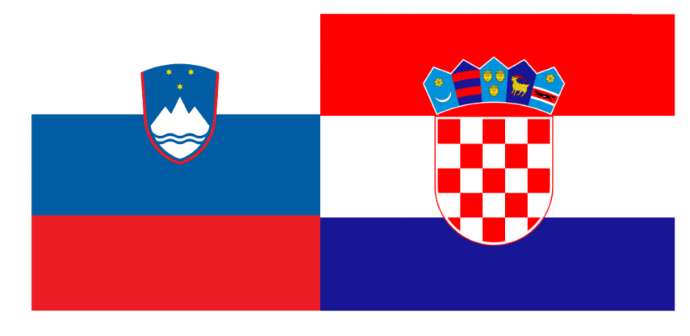STA, 19 December 2018 - The Grand Chamber of the European Court of Human Rights (ECHR) will examine the case brought by Slovenia against Croatia over the defunct bank Ljubljanska Banka (LB), the court said on Wednesday.
In the application lodged on 15 September 2016, Slovenia argues unfairness, a lack of impartiality and discrimination by Croatian courts in proceedings brought by LB to collect debts owed by Croatian companies.
The Strasbourg court said that the ECHR Chamber, which had been allocated the case, now relinquished jurisdiction in favour of the Grand Chamber, comprised of 17 judges.
Jurisdiction is relinquished to the Grand Chamber only exceptionally. Under Article 30 of the European Convention of Human Rights this may happen when a case raises a serious question affecting the interpretation of the Convention or its Protocols, or where the resolution of a question before the Chamber might have a result inconsistent with a judgement previously delivered by the Court.
A response by the Government Communication Office indicates that the Grand Chamber is to first decide on the admissibility of the inter-state case.
Slovenia's high representative for succession Ana Polak Petrič hailed the decision, but said that it did not come as a surprise and that given the weight of the arguments presented by Slovenia in the inter-state case "we believe the application needs to be examined by the Strasbourg court's Grand Chamber".
She told the STA that the decision meant that the case would be heard and that Slovenia would have an opportunity to set out its arguments, possibly even in an oral hearing.
Polak Petrič expects the procedure to take several years. "Inter-state cases take their time, considering broader aspects involved. Countries also take their time to present their arguments, and nor is the damage claim simple. It concerns 48 cases from the 1990s in which Ljubljanska Banka claimed debts in Croatian courts".
In the application, Slovenia alleges that Croatia's judicial and executive authorities have illegally prevented LB from recovering debt from Croatian companies incurred in the 1990s through their systematic and arbitrary conduct, thus violating European law originating in the European Convention of Human Rights.
On brining the case, the then Justice Minister Goran Kelmenčič explained that such conduct on the part of Croatia put Slovenia in an unfair and unenviable position, considering the country had to repay the savings deposits held by Croatian clients of the LB Zagreb branch under the 2014 ECHR judgement in the Ališić case.
On the other hand, he said that Croatia had done everything in its power over the past 25 years to prevent LB to collect debts owed by Croatian companies.
Klemenčič explained that LB was the biggest bank in the former Yugoslavia and that the Zagreb subsidiary had financed Croatian companies, enabling them to function and develop. "Loans from LB created positive effects on the Croatian economy."
Since the debtors (Croatian companies) after the break-up of Yugoslavia failed to settle their debts to LB stemming from loans and guarantees granted after 1980, LB and its Zagreb subsidiary launched enforcement proceedings before Croatian courts between 1991 and 1996.
There were more than 80 such proceedings, and they were worth millions, the minister stressed, adding that in 25 years LB had managed to enforce through Croatian courts only EUR 700,000.
Klemenčič said that the lawsuit contained proof that the "Croatian executive directly interfered with the functioning of the judiciary, prevented enforcements, while the judiciary in Croatia changed the case law and prevented LB from successfully enforcing their legitimate claims to Croatian companies".
In the wake of the 2014 ECHR judgement in the Ališić case, Slovenia examined 81 suits brought by LB in Croatia, finding that in 26 the cases the European Convention of Human Rights had been violated.
Polak Petrič said that since Slovenia lodged its application with the ECHR, the number of cases in which Slovenia detected direct violations of the Convention had increased from 26 to 48.
Court proceedings in Croatia are slowly coming to an end and every case in which the judgement becomes final is included in Slovenia's application in support of the case.
Polak Petrič said that the damages claimed by Slovenia from Croatia had increased from EUR 360m to EUR 430m.
The Slovenian government alleges multiple violations of Article 6 of the Convention with respect to the right to a fair trial, equality before the law, right to enforcement and trial within a reasonable time.
Slovenia also alleges violation of Protocol No. 1 to the Convention concerning peaceful enjoyment of possessions.
The Foreign Ministry also commented on the issue today for the STA, saying LB had only been able to secure a tiny fraction of the claims to Croatian companies.
Croatian courts on average needed more than 15 years to reach final decisions in the matter, while in some cases the procedures dragged on for more than 22 years, the ministry wrote.
Slovenia expects that following the decision on the LB savers, the ECHR will also find a just solution as regards the rights violations suffered by the bank, it added.







